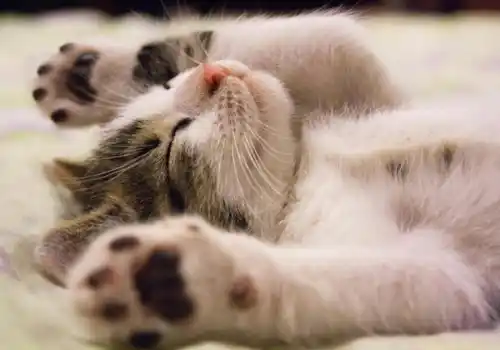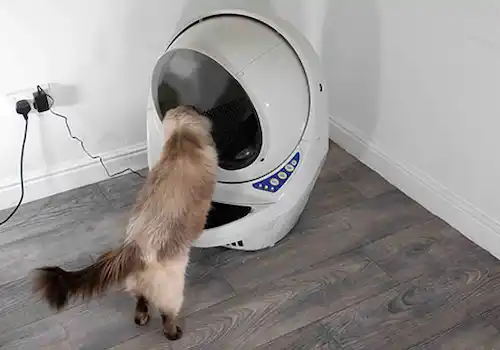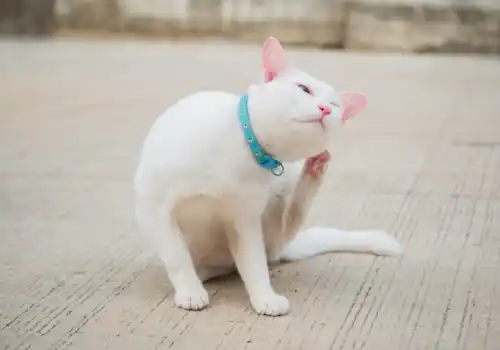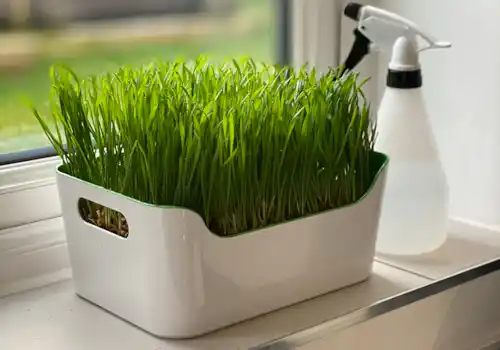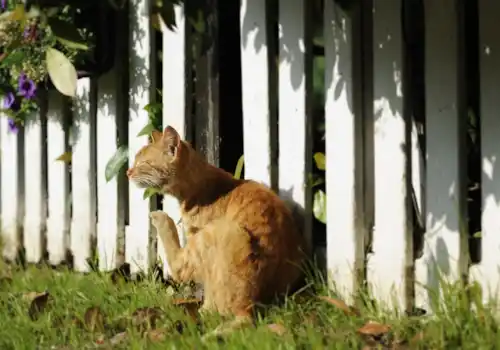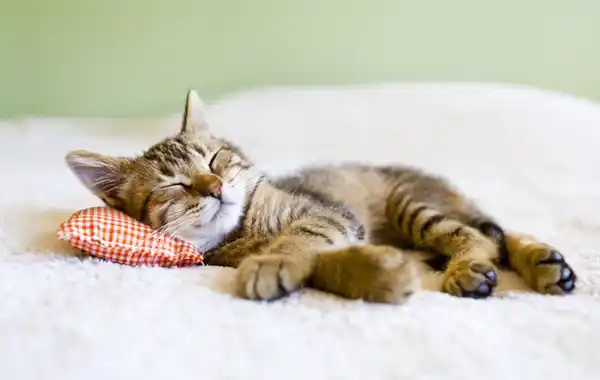Sleep is an incredible regenerative force and cats are renowned for their ability to snooze. But what are the signs that our feline friends are actually getting good sleep?
One of the most important essentials for making sure your pet has a happy and healthy life is often overlooked: plenty of snoozing. Just as with us, getting enough sleep is absolutely key to good physical and mental health, and it can play a part too in the bond you have together.
Sleep affects almost every single type of tissue and system in the body, from the brain, heart, and lungs, to immune function, disease resistance, and metabolism, to mood, memory, and learning processes.
How much?
Cats are Olympic champions when it comes to sleeping! On average, an adult will snooze for around 15 — 16 hours each day. Your cat only spends around 25 per cent of that time in deep sleep however; the rest of the time he is dozing, still resting but alert enough to rouse at a moment’s notice. Kittens and seniors spend even longer sleeping, as much as 20 hours within a 24-hour period.
The reason why cats sleep so much is thought to be the legacy of feline evolution, physiology, and nutritional habits: hunting prey uses a lot of energy and taking a nap between meals conserves energy and helps the body to recharge.
Too much or too little?
How much time your cat spends sleeping varies between individuals as well as according to age. An energetic cat who has had plenty of stimulation and activity may nap for longer periods; sleeping time also tends to increase on cloudy, cold, and rainy days. However, sudden changes in sleeping patterns can be a sign that there’s a health issue, especially if you also notice changes in behaviour. If you notice that your cat is sleeping either more or less than usual, consult your vet.
Cats are crepuscular — that is to say that they are most active at dawn and dusk. Most adapt their sleeping schedules to their humans, but some will be at their liveliest at those times when you either want to go to bed or don’t want to be woken up in the morning. They are also what is known as polyphasic sleepers; rather than sleeping for one long period like us, they have multiple sleep periods.
Do cats dream?
Yes, they do! Like us, cats cycle through different stages of sleep, experiencing both
non-rapid eye movement (NREM) and rapid eye movement (REM) sleep. Studies reveal that during the NREM stage your cat is in light sleep, ready to wake for action almost instantly should he need to. This stage may then be followed by a period of alertness, then drowsiness and more NREM sleep, cycling through them several times before moving into REM sleep.
While he’s in REM sleep you may see your cat twitching his paws and whiskers, and spot his eyes moving both horizontally and vertically behind his closed eyelids. In humans, REM sleep is linked to dreaming and it would seem cats and other animals are no different, with studies showing them appearing to act out their dreams while in this stage.
An igloo bed can help make a cat feel more secure.
Do cats snore?
Again, like humans, some cats snore while sleeping. It occurs when air cannot move freely through the nose and throat, making the tissues vibrate. Overweight cats are more likely to snore than slim ones due to fat build-up around their upper airways, which narrows their oxygen intake. Short-nosed breeds, such as Persians, Exotic Shorthairs, and Himalayan cats, also have more of a propensity to snore because the shape of their heads can result in narrowed nostrils, nasal passages, and nasopharynx.
Respiratory infections, allergies, or a foreign body, such as a grass seed trapped in the nose, can also be a cause of snoring. If your cat is normally a quiet sleeper and suddenly starts snoring, ask your vet to check him out.


